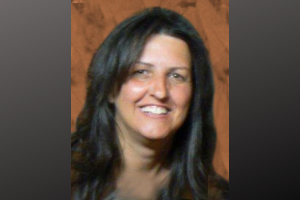How a Métis genealogist helps people uncover their Indigenous ancestry
Anne Anderson has spent a lifetime trying to piece together the past
Understanding your family history can offer a sense of identity and belonging, but for people with Indigenous ancestry, that history can be difficult to uncover. Survivors of the 60s Scoop, for example, have been told years after they were forcibly taken from their families as children that their birth records were lost or destroyed, meanwhile, churches held onto residential school records for decades.
Anne Anderson, a certified genealogist who researches family trees, has been trying to piece together the past throughout her entire life. Anderson is Métis from fur trade and has Cree, Illinois, Huron-Wendat and Huron-Abenaki ancestry. Since 2011, she has fielded calls from thousands of Indigenous people seeking information about themselves and their family histories.
Anderson spoke to Hannah Carty about growing up Métis in the Belle River area, the importance of community, and the trials and triumphs of helping others uncover their ancestry.
HC: How has your understanding of Indigenous history in Canada deepened through your research?
AA: It’s been a lifetime of learning what happened to Indigenous people in Canada, and I don’t think I’ll ever know the whole story. I kind of always knew it, but there’s a lot of intolerance. That’s what this was all about. I’m glad that people are finally allowing Indigenous people to exist and that we’ve finally gotten to a point where they’re going to be able to at least be acknowledged. But there will not be reconciliation or justice until people not only understand that Indigenous priorities are just as important as their own, but that they also cherish them as much as their own.

























No comments:
Post a Comment
Please: Share your reaction, your thoughts, and your opinions. Be passionate, be unapologetic. Offensive remarks will not be published. We are getting more and more spam. Comments will be monitored.
Use the comment form at the bottom of this website which is private and sent direct to Trace.